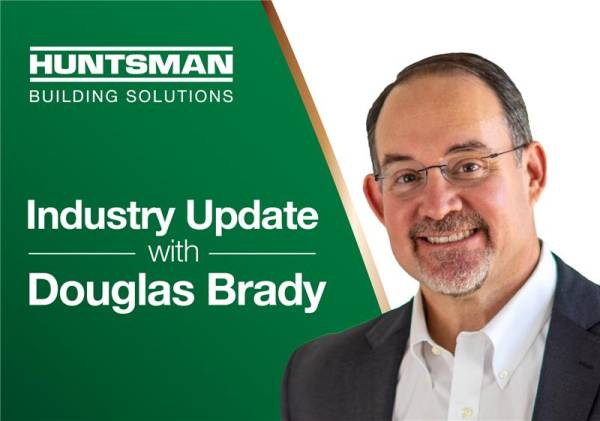Addressing Tariff Impacts: Insights for Spray Foam Contractors
6 May 2025
Let’s take a closer look at how tariffs work and how they may impact our industry and individual businesses

Like all Americans, spray foam industry stakeholders are paying close attention to the news these days. With a new U.S. administration in place, changes are happening daily and one of the biggest concerns today is tariffs. As an industry that relies on raw materials from other countries, we aren’t immune from tariffs. Let’s take a closer look at how tariffs work and how they may impact our industry and individual businesses.
Tariffs are essentially duties and taxes applied to goods produced in other countries that are entering the United States and are enacted under the premise of protecting American industries and addressing trade imbalances. Those we are dealing with today, 301 level tariffs, are enabled through the Trade Act of 1974 and are applied to goods originating from countries considered to be engaging in unfair trade practices.
Tariffs on imported goods are not being administered equally and unilaterally. For example, as of this writing in early April, President Trump has announced a base tariff on imports coming into the U.S. He has also announced higher reciprocal tariffs on countries the administration has deemed “bad actors”. There is a substantial number of countries on the list and the reciprocal tariff rates applied to each varies greatly. However, it’s important to note that tariffs may be increased, decreased or cancelled at any time pending retaliatory tariff action or negotiations with other countries.
Who ultimately pays tariffs is a common question asked. The short answer is that the importing company receiving the goods or materials will initially pay the tax. In the case of spray foam related raw materials, it will likely be the manufacturer or distributor who is first impacted, as they will be the importing entity. However, the more complete answer is that the cost of tariffs will flow down the product’s value chain to be absorbed by all parties involved in spray foam’s lifespan including the manufacturer, distributor, spray foam contractor and the end customer, whether that is homebuilder, homeowner, or facility owner. Unfortunately, there’s no getting around the fact that tariffs will make spray foam more expensive for everyone involved.
Notably, some manufacturers importing materials from other countries may be better positioned ahead of the tariffs. For example, some may have an existing supply of spray foam in the U.S. that can be sold without an added tariff-related price increase applied to it. Thus, pricing from these manufacturers might not increase as quickly. Additionally, some manufacturers may produce specific materials used to produce spray foam. For example, Huntsman Building Solutions as an entity of Huntsman Corporation has been producing MDI in Geismar, Louisiana since 2018 and, because we source our MDI from this facility, we will face no tariffs on that material specifically.
If you’re a contractor trying to wrap your head around tariffs, one of the best things you can do is to work closely with your trusted manufacturer as soon as possible. Together you can plan to order product and to potentially access it before tariffs impact pricing and/or before the threat of even higher tariffs presents in the future.
Also, understand these tariffs will not only impact the spray foam industry, but the construction and housing sectors on a much broader basis. While we in the spray foam industry should expect some pain, homebuilders and consumers will also be impacted. For example, homebuilders are facing impacts from steel and lumber tariffs from Canada, refrigerator tariffs from Mexico, as well as tariffs on home electronics imported from China, to name a few. As a result, the National Association of Home Builders (NAHB) recently estimated the cost to build a home will increase by $7,500-10,000 and, with that, the American consumer will undoubtedly face even higher housing costs.
I want to emphasize Huntsman Building Solutions’ commitment to serving its valued contractor customers during this period of uncertainty. We are a global manufacturer, with sites all over the world and a deep understanding of tariff law. This is but one challenge in a long line we have faced. Our operations are agile, we produce many of our own materials and, ultimately, are committed to supplying contractors with the highest quality product so they succeed. We are a resource to you and are here to help you navigate through this.
Douglas Brady, President
Huntsman Building Solutions
